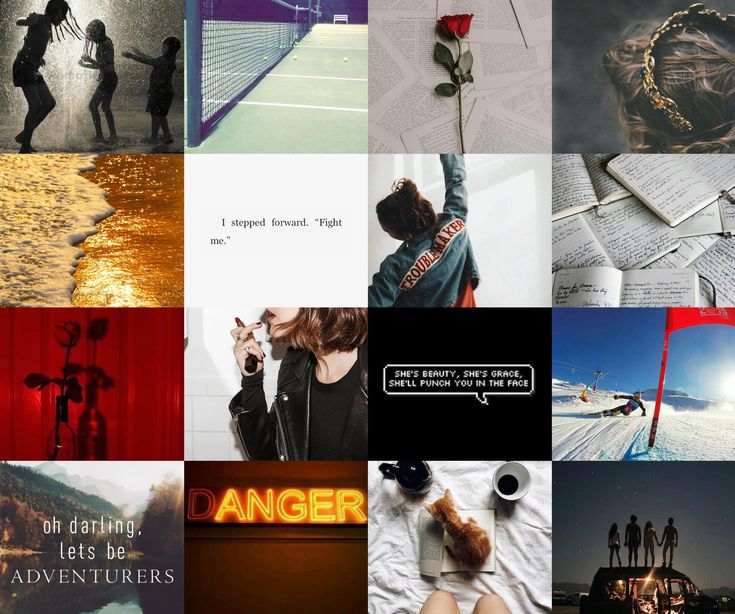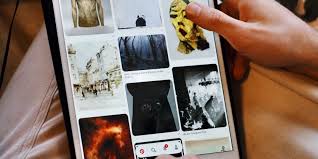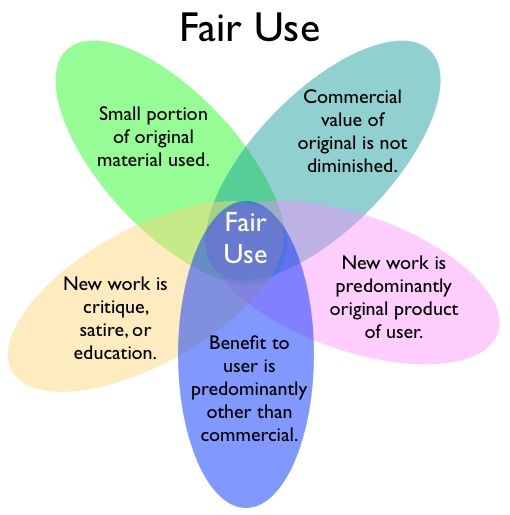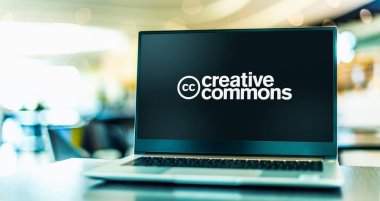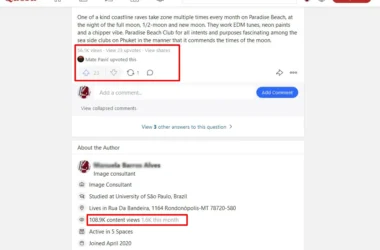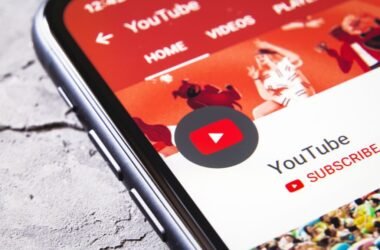Understanding Pinterest’s Copyright Policy
are pinterest images copyright free, Pinterest, like many social media platforms, operates under specific copyright policies designed to protect creators and users. When you post or share images on Pinterest, it’s essential to understand that these images may be protected by copyright laws. Copyright grants the original creator exclusive rights to their work, meaning that they control how it is used, distributed, and displayed. Pinterest’s copyright policy emphasizes that users should only upload images they have the right to share. This means that if you find an image on the internet and pin it to your board, you may not have the legal right to do so unless it falls under specific categories, such as fair use or public domain. As a user, being aware of these policies is crucial for avoiding potential legal issues and respecting the rights of creators.
Are Pinterest Images Copyright Free? The Legal Perspective
The question of whether Pinterest images are copyright free is complex. Generally, most images found on Pinterest are not copyright-free. While you may come across many visually appealing images, using them without permission could lead to copyright infringement. If an image is protected by copyright, the creator holds the rights, and you would need to obtain permission to use it. However, some images may fall under Creative Commons licenses, which allow for certain uses without direct permission, provided you adhere to the specific terms of the license. Therefore, it’s crucial to understand that just because an image is available on Pinterest, it doesn’t mean you can freely use it for any purpose. Always consider the legal perspective when dealing with images on Pinterest to ensure that you are not violating copyright laws.
How to Determine Image Rights on Pinterest
Determining image rights on Pinterest can be straightforward if you know what to look for. Start by checking the source of the image. Many pins link back to the original website or creator, which often includes information about copyright. Look for any licenses or usage guidelines mentioned on the site. Additionally, some images will have a watermark or a note indicating whether they are available for commercial use or require attribution. If the pin does not provide clear information about its copyright status, it is safer to assume that the image is protected and to refrain from using it without permission. Utilizing tools like reverse image search can also help identify the original source of the image and clarify its usage rights. Understanding these elements is essential for navigating Pinterest responsibly and legally.
The Difference Between Fair Use and Copyright on Pinterest
Understanding the difference between fair use and copyright is vital for anyone using Pinterest. Copyright laws protect the rights of creators, ensuring they have control over how their work is used. Fair use, on the other hand, is a legal doctrine that allows for limited use of copyrighted material without needing permission. In the context of Pinterest, fair use might apply if you use an image for commentary, criticism, or educational purposes and do not reproduce the image in a way that could harm the market value of the original work. However, fair use can be a gray area and varies by situation, so it’s essential to analyze whether your usage meets the criteria. When in doubt, it’s best to seek permission from the copyright holder or choose images that are clearly marked for public use. This understanding can help you navigate your pinning strategy while respecting the rights of image creators.
Finding Copyright-Free Images on Pinterest: A Step-by-Step Guide
If you’re looking for copyright-free images on Pinterest, follow these steps to ensure you are using images legally and ethically.
- Use the Right Search Terms: Begin by searching for images with keywords like “Creative Commons” or “public domain.” These terms will help filter results that might have fewer restrictions.
- Check Image Details: Click on the pin and examine the image details. Look for any licensing information provided in the description or the linked website. This information can help you understand how the image can be used.
- Visit the Source: Always click through to the source of the image. Often, the original website will have clearer guidelines about copyright and usage rights.
- Look for Royalty-Free Sites: Many users on Pinterest link to royalty-free image sites. These images can typically be used freely or with minimal restrictions, such as attribution.
- Attribution: If you find an image under a Creative Commons license that requires attribution, make sure to credit the creator appropriately in your post.
By following these steps, you can find images on Pinterest that are copyright-free and usable without legal complications, helping you create content that respects the rights of creators while enhancing your own projects.
Creative Commons and Stock Images: What You Need to Know
When navigating the vast world of Pinterest, understanding Creative Commons and stock images is crucial. Creative Commons licenses allow creators to share their work while setting specific rules for how it can be used. These licenses typically fall into several categories, ranging from allowing modifications to prohibiting commercial use. For example, a Creative Commons Attribution license permits others to use, remix, and even distribute the work, as long as they give proper credit to the original creator.
On the other hand, stock images are professional photographs that can be licensed for a fee. Websites like Shutterstock or Adobe Stock offer these images for various uses, including social media and marketing. The advantage of using stock images is the assurance that you have the right to use them for your intended purpose, avoiding potential copyright issues. Therefore, always check the licensing terms before using any image to ensure compliance and respect for the original creator’s rights.
The Importance of Attribution for Pinterest Images
Attribution is a critical aspect of using images on Pinterest. Giving credit to the original creator not only respects their work but also helps you avoid potential copyright issues. When you pin an image, it’s essential to include the source or link back to the creator’s website. This practice not only acknowledges their effort but also builds trust within the Pinterest community.
Using attribution correctly can also enhance your credibility, especially if you are sharing images for educational or commercial purposes. Many creators appreciate this gesture and may even engage with your content more positively. Remember, even if an image is shared freely, proper attribution is a must. It demonstrates professionalism and integrity in your use of visual content.
Using Pinterest Images for Commercial Purposes: What You Should Know
If you plan to use Pinterest images for commercial purposes, there are several important factors to consider. First and foremost, not all images on Pinterest are free to use commercially. It’s vital to verify the copyright status of each image. Images protected under copyright require permission from the creator before you can use them in any commercial context, such as advertising or product promotion.
Furthermore, utilizing stock images or images under Creative Commons licenses with commercial permissions is a safer approach. Always read the license details to ensure compliance with usage rights. Misusing images can lead to serious legal consequences, including fines or lawsuits. Thus, take the time to understand the legal landscape before incorporating Pinterest images into your commercial projects.
Copyright Infringement on Pinterest: Avoiding Legal Issues
Copyright infringement is a significant concern for users of Pinterest. Posting or using an image without proper permission can lead to legal ramifications, including takedown notices or lawsuits. To avoid these issues, it’s essential to be proactive in understanding copyright laws related to visual content.
When you come across an image you want to use, first check if it is covered under Creative Commons or if it requires a stock license. If you’re unsure about the image’s copyright status, it’s best to seek images from reputable sources or stock libraries. Additionally, familiarize yourself with Pinterest’s policies on copyright and reporting violations. By taking these steps, you can enjoy the vast resources available on Pinterest while protecting yourself from potential legal challenges.
Best Practices for Using Images Found on Pinterest
To make the most of your Pinterest experience while using images responsibly, follow these best practices. Start by always verifying the image source before sharing or repinning. This ensures that you respect the rights of the original creator. If the source isn’t clear, consider looking for similar images from licensed sources or stock image platforms.
Next, implement proper attribution whenever possible. Including the creator’s name or a link to their work not only showcases respect for their creativity but also enriches your content. Moreover, be cautious about using images for commercial purposes without clear rights; always check the licensing agreements.
The Role of Public Domain Images on Pinterest
Public domain images are an invaluable resource for users on Pinterest. These images are not protected by copyright and can be freely used, modified, and shared without permission. This means that anyone can access a vast array of artwork, photographs, and other visual content without worrying about legal repercussions. On Pinterest, public domain images can help creators enrich their boards and enhance their visual storytelling without the fear of copyright infringement. However, it’s essential for users to verify the public domain status of an image before using it, as not all images labeled as such are truly free of restrictions. Websites like Wikimedia Commons and the Public Domain Review can be excellent places to find legitimate public domain images suitable for Pinterest.
How to Navigate User-Generated Content on Pinterest Legally
User-generated content (UGC) on Pinterest presents both opportunities and challenges. Many users share images they create or find online, but this content is often still protected by copyright. To navigate UGC legally, it’s crucial to understand the ownership rights associated with these images. Always check the original source of the image and look for any usage rights specified by the creator. If an image appears on Pinterest but links back to a website, visit that site to see if it provides guidelines for sharing or repinning. Additionally, obtaining permission from the original creator is a safe approach if you plan to use their image for commercial purposes. Respecting copyright and giving credit where it’s due not only helps avoid legal issues but also fosters a community of trust and collaboration among creators on Pinterest.
Tips for Sourcing Images Legally on Pinterest
Sourcing images legally on Pinterest is essential for maintaining a responsible digital presence. Here are some practical tips to help you navigate this process. First, always look for images with clear usage rights. Many pins link to the original source, which often includes information about how the image can be used. Second, consider using images marked with Creative Commons licenses, as these often allow for sharing with proper attribution. Third, familiarize yourself with the concept of fair use, which can sometimes apply in educational or non-commercial contexts but is often misunderstood. Finally, when in doubt, don’t hesitate to reach out to the image owner for permission. This proactive approach not only helps you stay within legal boundaries but also builds relationships with other creators in your niche.
Understanding the Implications of Copyright Violations on Social Media
Copyright violations on social media can lead to serious consequences for users. When someone uses an image without permission, the original creator has the right to take action, which can include sending a takedown notice or pursuing legal action. This not only impacts the individual but can also affect their reputation and credibility. On Pinterest, users should be especially cautious, as the platform has strict policies regarding copyright infringement. A single violation can result in account suspension or removal of content. Understanding these implications emphasizes the importance of respecting copyright laws and taking the time to source images correctly. By being aware of the potential fallout, users can make informed decisions about the content they share.
The Impact of Copyright on Content Creators on Pinterest
Copyright plays a significant role in shaping the experiences of content creators on Pinterest. For many artists and photographers, copyright is essential for protecting their work from unauthorized use. When creators know their rights, they can better safeguard their intellectual property and prevent others from profiting from their hard work without consent. However, copyright also influences how users interact with content. If users respect the copyright of creators, it encourages more original content to be shared, enriching the Pinterest community. Additionally, understanding copyright can help creators develop effective strategies for promoting their work, including proper attribution and engagement with their audience. Ultimately, respecting copyright not only protects creators but also enhances the overall integrity of the platform.
Guidelines for Using Pinterest Images in Your Digital Marketing Strategy
When incorporating Pinterest images into your digital marketing strategy, following a few guidelines can enhance both your effectiveness and compliance with copyright laws. Start by ensuring that you have the right to use any images you plan to pin. This might involve sourcing images from royalty-free stock sites or obtaining permissions from original creators. Next, always give credit where it’s due; if an image requires attribution, ensure that you provide it in your pin description. Additionally, consider the context of the images you use. They should align with your brand message and resonate with your target audience. Regularly reviewing Pinterest’s copyright policies can help you stay updated on best practices and avoid any potential pitfalls. By following these guidelines, you can utilize Pinterest images effectively while respecting the rights of their creators.
Common Misconceptions About Pinterest Images and Copyright Laws
Several misconceptions about Pinterest images and copyright laws can lead to confusion for users. One common belief is that all images on Pinterest are free to use, which is far from the truth. Many images are still protected by copyright, even if they are shared widely. Another misconception is that simply giving credit to the original creator makes the use of their images legal. While attribution is important, it does not replace the need for permission in many cases. Additionally, some users think that images found through Pinterest can be used for commercial purposes without restrictions, but this is often not the case. Understanding these misconceptions is crucial for anyone who wants to navigate Pinterest responsibly and avoid potential legal issues related to image use.



